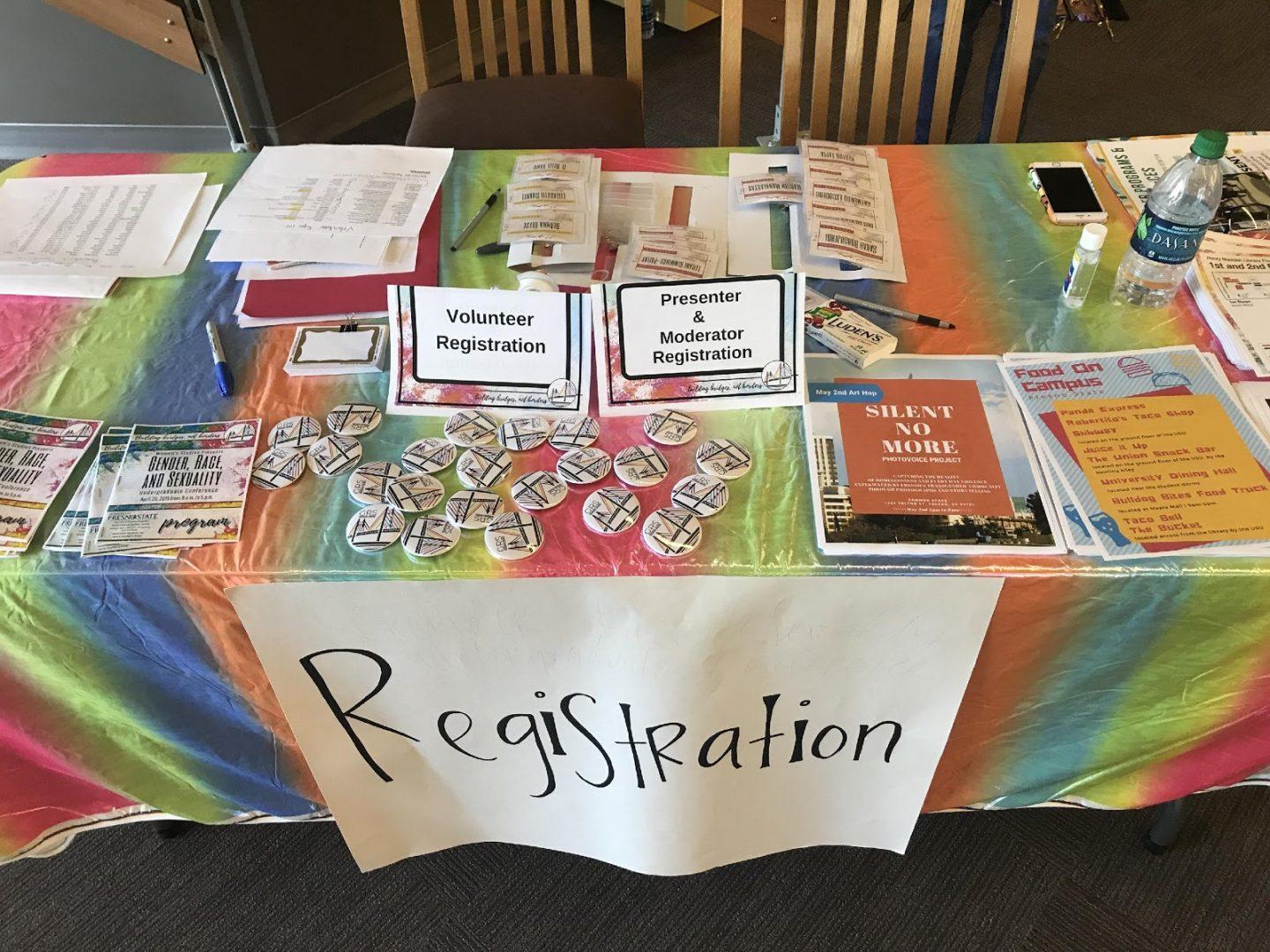The Henry Madden Library hosted a “Gender, Race and Sexuality” undergraduate conference, presented by the women’s studies department last Friday.
The conference ran from 8 a.m. to 5 p.m. and featured four blocks of panels with several presenters who discussed topics related to gender, race and sexuality.
The first panel in the third bloc, titled “Shifting Narratives: Eradicating the Dynamics of White Heteronormativity Through Media Representation,” drew in a big crowd.
Fresno State women’s studies student Emalee Farley was the first speaker of the afternoon panel with her presentation: “Queering YouTube: A Queer Analysis of the Gay and Wondrous Life of Caleb Gallow.”
Farley outlined allegedly inaccurate stereotypes presented by the television media of LGBTQ individuals while focusing on a YouTube series that aims to better represent them.
“This series is queer for more reasons than just having queer characters,” Farley said. “Throughout the series, there are multiple scenes and instances that challenge and reject many norms while telling the story you’re all no doubt used to by now: a group of friends living life in a big city.”
As to why this series is crucial is an important part of the conference, Farley said: “Representation of diverse queer narratives is incredibly important to social acceptance of the LGBTQ community.”
Most “friends, family members, elected officials and voters at large” watch TV and are thus exposed to LGBTQ stereotypes that are portrayed, Farley said.
“These narratives have the potential to have a profound effect on how these individuals feel about queer rights,” she said. “And that’s going to affect legislation and social practices.”
TV produces the “same tired narratives” ad nauseam, according to Farley.
Communication student Julia Shaw also criticized these narratives and further delved into them during her presentation: “‘White Gold:’ The Enforcement of Toxic Masculinity in a Post-Feminist Framework.”
The Netflix series “White Gold,” like other TV shows, misrepresents real-life individuals, Shaw said.
“The show perpetuates the harmful myth of post-feminism, which is the myth that feminism has been achieved and we no longer need it, because it completely disregards the second wave of feminism that would’ve been occurring at the time of the show,” Shaw said. “‘White Gold’ erases feminism as it glorifies the past in the ‘80s for white men.”
“White Gold” follows the media’s tradition depicting tired stereotypes, Shaw said, and is, in turn, the opposite of what “The Gay and Wondrous Life of Caleb Gallow” is doing for TV. The former show is what TV should retire, while the latter show is what TV should permanently become, both Shaw and Farley expressed.
“‘White Gold’ is my tool to make sense of feminist erasure because I think it’s a newer, more dangerous subcategory of post-feminism,” Shaw said. “And that’s my reason for this presentation and why I think it’s so important to talk about it and recognize the ways these new media sites are affecting our social ideas of feminism and other important historical and cultural movements.”
Both series focused discussed in the panel are exclusively online””a trend of many modern, popular shows and the manner in which they are consumed””said Aimee Rickman, an assistant professor in child and family science at Fresno State.
“Young people are going online to try to get things they are not able get offline, despite the efforts, despite being out there and asking for these things””begging for these things,” she said. “They are not able to get respect or guidance.”
Meanwhile, Abigail Garcia, a criminology student at Fresno State, left the conference in awe, saying, “I used to think what happened in movies and shows didn’t matter because it wasn’t real life, but now I realize it does matter.”
“Misrepresentation of anyone in any media can distort society’s view on a person, as it already does,” she said. “That needs to change.”





